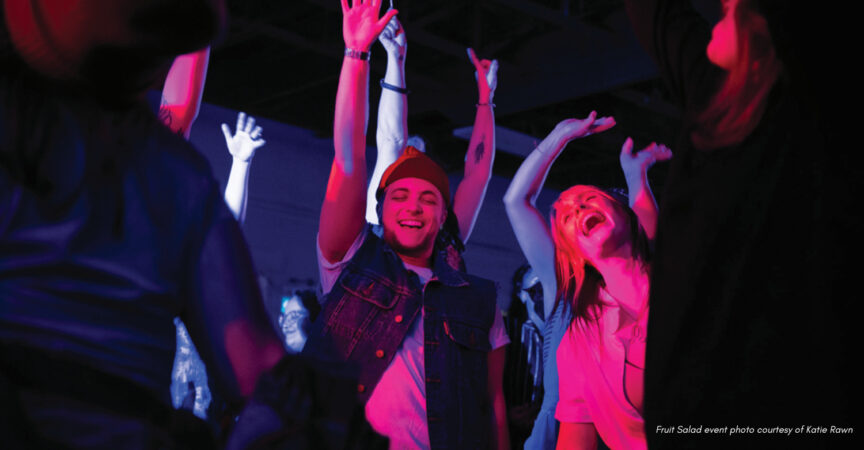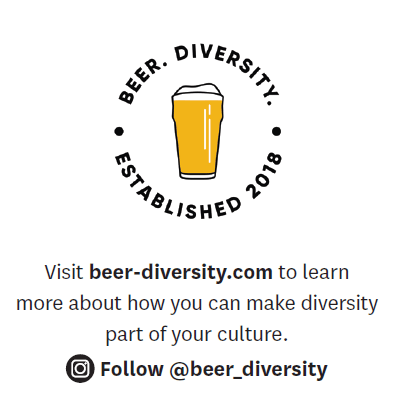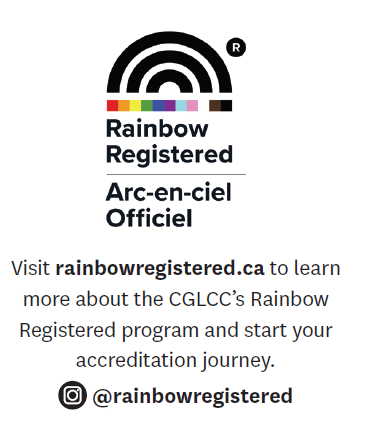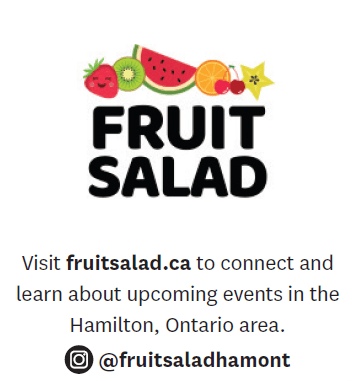The Art of Welcoming the 2SLGBTQIA+ Community
As PRIDE 2023 comes to the end of a month of celebration, the industry is learning that the pot at the end of the rainbow is filled with more than just profit.
By: Hannah Wiggin
For the month of June, PRIDE Month communications and colour palettes begin to infiltrate our inboxes and social feeds and businesses decorate their spaces. From national banks, to superstores, to alcohol companies, businesses proclaim their allyship and commitment to inclusivity to the 2SLGBTQIA+ community through diversity-focused events and promotions.
The promotion of equity, diversity and inclusion during PRIDE Month is an important step in fostering welcoming and safer spaces, but participating businesses are encouraged (and arguably obligated) to represent PRIDE in a meaningful and authentic way, every month of the year. PRIDE originated as a movement of rebellion, symbolizing protest and community activation. Its presence can, and should, be experienced and felt year-round, as are the social injustices at the heart of its existence.
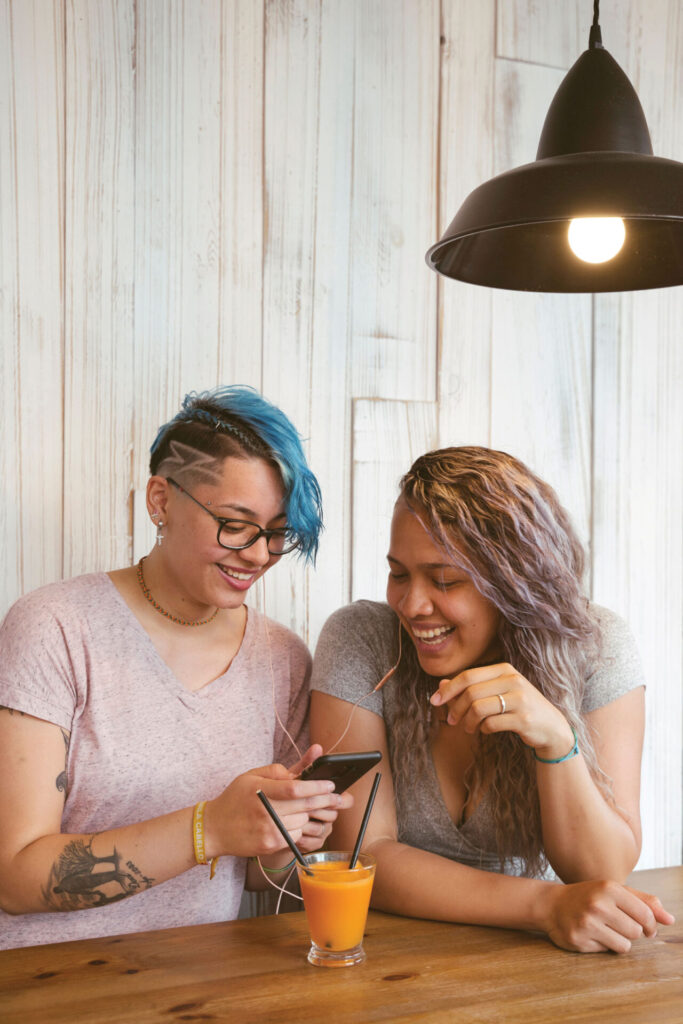
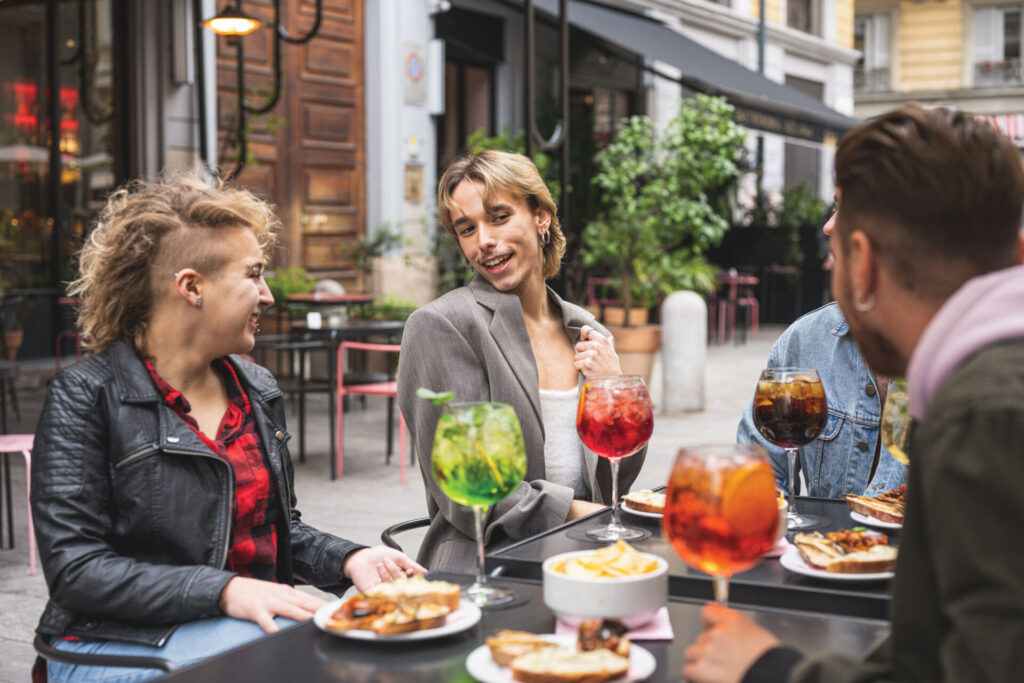
Ren Navarro, owner of the consulting company Beer Diversity, brings valuable perspective to diversity and inclusion in the hospitality industry as a queer Black industry leader. “I don’t cease to exist at the end of June. What happens on July 1st?”, she asks.
When businesses approach Beer Diversity for consultation and education, Navarro recommends approaching PRIDE Month as an opportunity to launch inclusion and diversity initiatives that will carry on throughout the year. Improving diversity and inclusivity in the hospitality industry is an ongoing process that requires a commitment to growth, learning and action. By taking proactive steps to create a more inclusive workforce, fostering an accepting work culture and creating equitable customer experiences, hospitality professionals can help create an industry that welcomes and benefits everyone.
Disrupt Social Conventions with Community-Led Events. Rethink the types of events you host in your space.
Activism through community events is an impactful and accessible way to promote inclusivity within your business and shake up the status quo. Recruiting the expertise of community-led organizations can make sure your event is on point and encourage customer engagement. Fruit Salad, founded by female entrepreneur Sarah Barnhart, is a Hamilton, Ontario-based organization that responds to the lack of safer spaces dedicated to 2SLGBTQIA+ women, femmes and gender non-conforming folks. Fruit Salad organizes events that encourage queer joy in its many forms, including queer prom, speed dating and drag shows as well as educational workshops. Barnhart and her team work with restaurants and hospitality spaces, noting that the company has “grown organically because people see it in action”. She believes that when folks get a taste of what lies beyond the drinking and dancing—the feeling of joy and connection that happens when events and spaces allow folks to be “queer enough”—they experience the magic at the heart of Fruit Salad’s success. This is the reason Barnhart started Fruit Salad—to allow hospitality spaces and employees to come as they are, welcoming patrons to present as their truest, authentic selves.
“I think it’s about continuing to learn; it’s a constant evolution. Allyship is action, not just a thing you say.” – Sarah Barnhartt, Fruit Salad
Sharing space in this way requires a commitment to hosting, engaging and interacting with different groups within your space. Barnhart points out that the venues that have worked well for Fruit Salad, and those where she sees opportunity for growth, are “spaces that believe in what we’re doing and are all in”. To prove the point, Fruit Salad has developed a roster of regular operators and venues that invite them back time and time again, increasing efficiency and profitability for both the event venue and the organization, and integrating Fruit Salad events into the host operation’s regular calendar.
Barnhart’s goal for Fruit Salad is for operators to see value in what they’re doing and welcome them to come host in their space. “This is one of the things that shows their patrons and their community that this is something that is of value, that works and is something people need”.
She also points out that PRIDE Month is a great way to open up your space and start to commit to allyship. “I think it’s about continuing to learn; it’s a constant evolution. Allyship is action, not just a thing you say.” She recommends that operators work with established community organizations and individuals to celebrate, collaborate and communicate about issues and build enduring partnerships to help understand what safer spaces for the 2SLGBTQIA+ community really look like.
“I think it’s really important when spaces talk about the events we’re hosting, that they use the word “safer” instead of “safe”, because we can’t guarantee that,” Barnhart emphasizes. She points out that collaborative partnerships with hospitality operators are an important part of the success and safety of Fruit Salad’s events. “We’re doing our best as human beings to create spaces where people will be
comfortable and feel safe. By working with organizations that are pioneers within their communities, you can create a more welcoming and equitable space that benefits everyone.”
Prioritize authentic representation in your social channels. What kind of social media feed
do you want to create?
“Representation” is first about recognizing 2SLGBTQIA+ people in the community, and second (and most importantly) about affirming the value of queer folk to others, and even to themselves, by making space for and celebrating community events.
For businesses that engage with (and benefit from) the 2SLGBTQIA+ community, representation should be a year-round, on-and offline consideration, present across all communications, both personal and virtual. All business communications can and should represent and include all community groups and team members, from the different promotional or event images selected for social media or websites, to the types of social media accounts you interact with to the language used in your team meetings or marketing strategies. Taking the time to consider the words and images you use has an impact on whether staff and/or prospective patrons will feel welcome, seen and valued when they visit or work in your establishment.
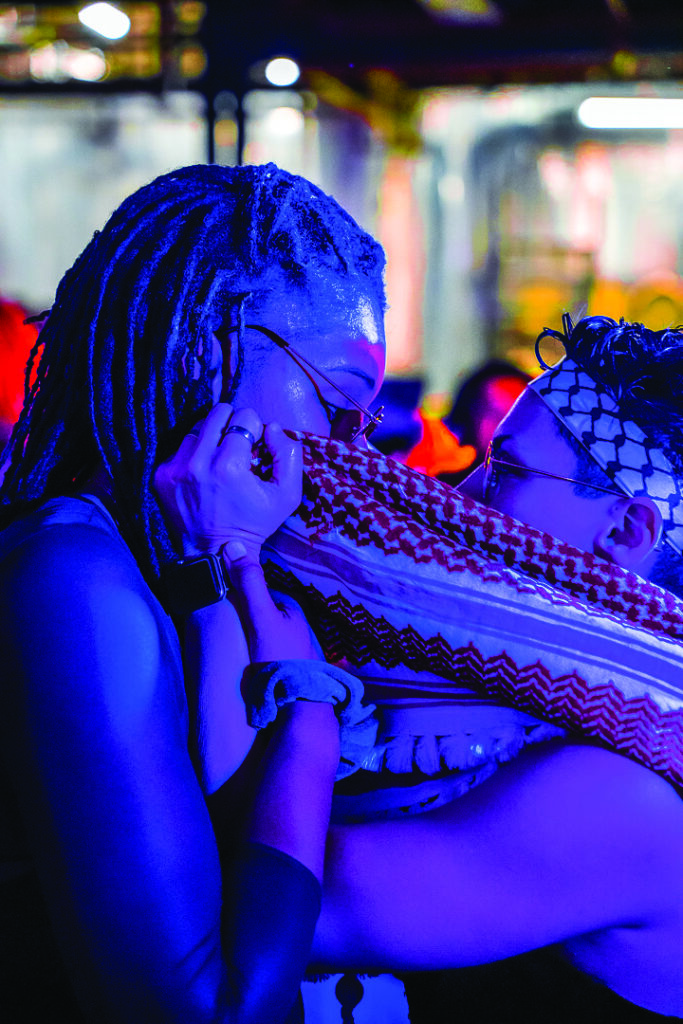
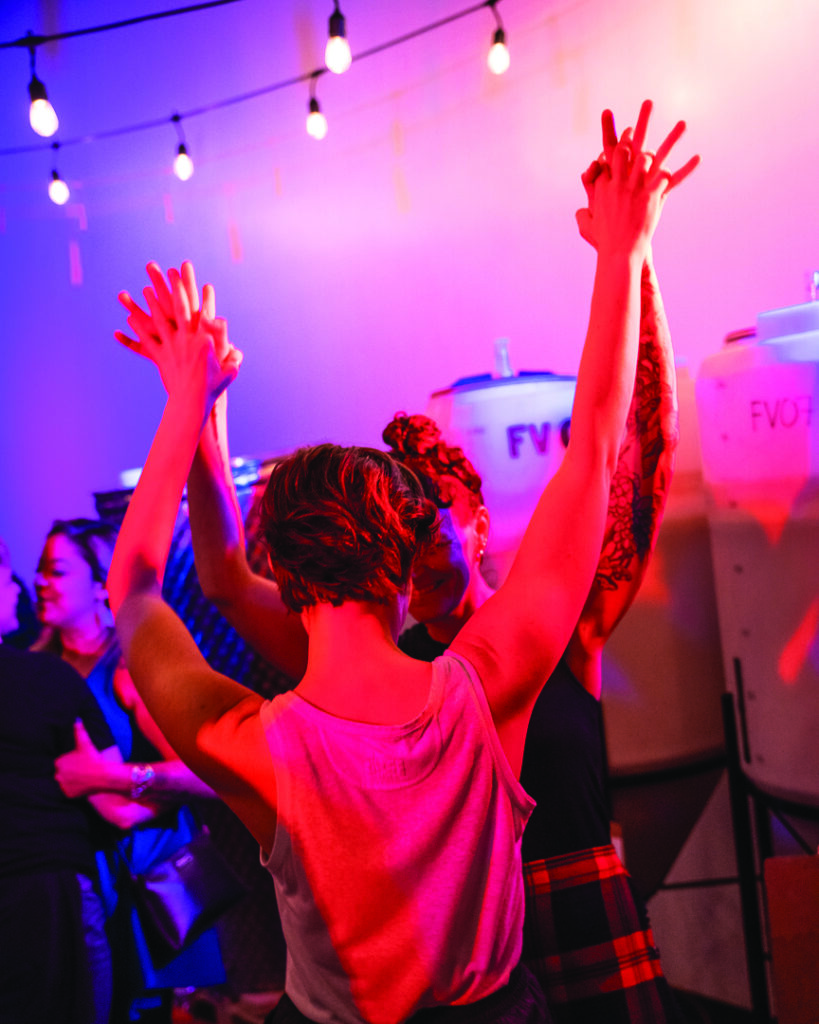
Authentic and thoughtful representation can be extremely powerful on social media and can help businesses grow their online reach and community. While “virtue signaling” (inauthentic or “shallow” posts designed to promote the moral character of a business or person) or other attempts to earn social validation by influencing public perception of inclusivity or engagement with a specific social group can backfire, there are ways to engage and support without implying a connection a business has not yet earned.
Celebrate real touchpoints, moments and events with people and groups you have welcomed or collaborated with using real photos from events you’ve hosted. Sharing moments captured at 2SLGBTQIA+ events you’ve hosted on your social pages, from weddings to drag shows, can help grow your network and build trust with the community.
Fruit Salad’s Instagram page tells a story of their organization, with 2SLGBTQIA+ folks laughing, dancing and hugging—all under perfectly-chosen lighting in moody shades of blues, purples and pinks. If their page feels revolutionary, it only underscores the point. Even in the age of social media, we don’t
always see Queer love represented in all its forms on business feeds. According to Barnhart, the styling of Fruit Salad’s digital presence was completely “accidental”. When Katie Rawn, affectionately named Fruit Salad’s “Chief Joy Capturer”, attended their events, she documented people being “their most beautiful and joy-filled selves”, creating an authentic and impactful experiential brand impression in a way Barnhart never truly imagined. Event photography on social has been foundational in building the success of Fruit Salad IRL, with folks travelling from all over to enjoy events and venues outside of the region reaching out to host Fruit Salad parties. Barnhart also notes that the social media impact has led to their community members using the same businesses and venues for their own private events like weddings, because “they know it’s real for you (the venue) and it’s somewhere they will be comfortable”.
Set the tone for staff and patrons. Were you walking the walk or just talking the talk?
A culture of inclusivity should be a core value reflected in every aspect of your service, experience and marketing strategy. The language you use in your marketing materials, the accessibility of your physical spaces, the availability of gender inclusive washrooms and the use of gender-inclusive language by your restaurant team are all aspects of a meaningful commitment to inclusivity.
When looking for new venues to host 2SLGBTQIA+ focused events, Barnhart says, “I feel like I need to be doing extra research and checking in more to ensure the commitment is top down. It can’t be just one person on the staff who is trying to convince their homophobic owners that this is a good idea.
It needs to be a real part of that space’s identity and ethos.”
Ren Navarro founded Beer Diversity in 2018 after seeing a deep need for changein how diversity and inclusion were being championed in the hospitality community. Navarro pairs her perspective with over a
decade of hands-on experience and approaches the industry with passion, knowledge and her trademark sense of humour. She summarizes her approach as “starting small and not overcomplicating it”. As a trailblazer in the craft beer community, both in Canada and beyond, Navarro has become an agent for real, meaningful change.
Navarro says Beer Diversity is all about working with your toolkit and building authentic, long-lasting relationships. An easy way of effectively communicating an actionable diversity strategy to both employees and patrons is through a value statement. “It’s your “House Rules” for those who are in your space,” she explains. “It includes your staff and your vendors, and extends to current and prospective patrons. It sets the tone.” Navarro suggests businesses keep their value statement simple: “This is what is important to us. If you can’t go along with it, you can’t be here”.
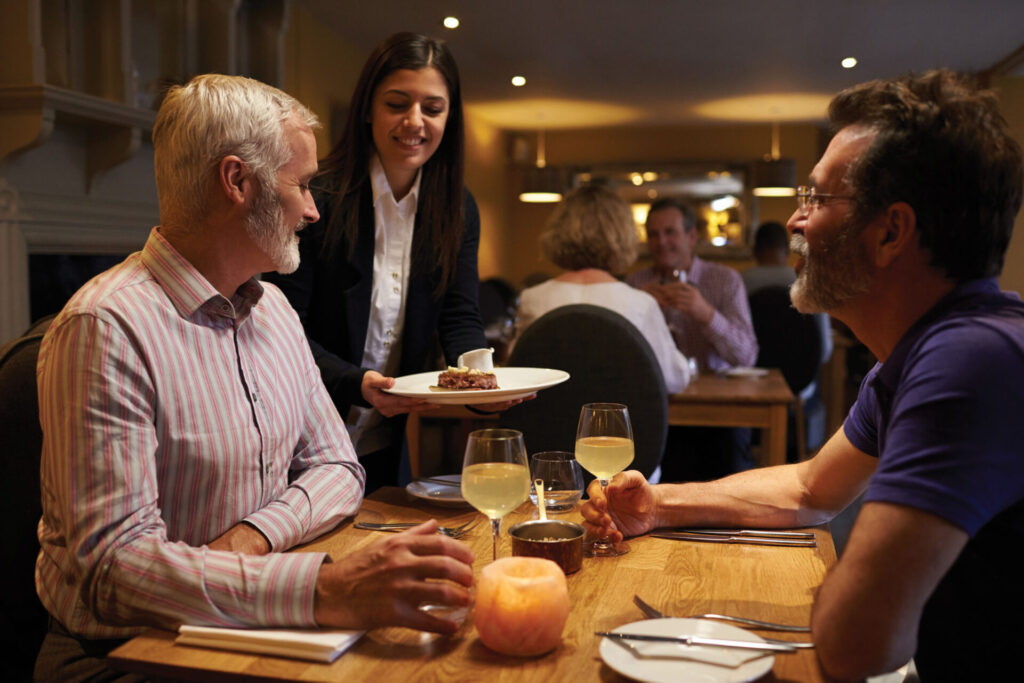
Posting your value statement by your bar, in your washrooms or in other public spots shows staff and guests you are accountable and committed. Navarro notes that these value statements also support and empower your staff. “You, (the patron), walking in means you have accepted the terms and conditions. By staying, you’ve signed off on it.”
When it comes to codes of conduct, Navarro underscores the importance of collaboration to make sure your code is truly inclusive, authentic and actionable.
She suggests operators collect data from their team, and answer key questions: “How will you ensure that the code of conduct is enforced? Does this code of conduct work in action? Does your team feel safe and included in discussions on inclusivity?” Navarro wants spaces to take the initiative seriously, keeping communications short and sweet and not overthinking it. “Don’t take six months to do it! They’re five points, max”.
Navarro explains that ownership needs to “be okay and comfortable with empowering their staff”, pointing out that it’s also okay for leaders to find themselves behind in the game of culture shifts happening within their own team. “Don’t stop it. Let it happen and do your own research. If it looks like it’s thriving, let it bloom!”
Navarro has worked with businesses where ownership is not on the same page as management and their staff and identifies the challenges that can be faced while trying to maintain inclusive spaces without honest backing from ownership. “If there isn’t buy-in from the upper echelons, then don’t do it”, Navarro says, having seen full staff turnover because owners aren’t willing to create more diverse, equitable spaces. She also underscores that owners should realize there can be real financial implications to not doing the work.
Navarro also champions making business accessibility investments and commitments available to both staff and patrons and suggests posting this information on all digital platforms, including reservation and delivery apps and even business Google listings. “Folks use your Google page to find your hours — they should be able to do the same for accessibility measures.” She has seen staff with pronoun pins and with signs that let patrons know which languages staff can communicate with them in, including ASL, and emphasizes that these extra pieces of interaction can really matter to the bottom line, helping grow your regular patron community and your business stand out in a tough employment market. Navarro encourages operators to embrace being a welcoming space for everyone, every day. “It’s so simple. People make it more complicated than it needs to be.”
Voices Matter. Learn from the personal experience of others who want you to succeed.
A business commitment to workplace diversity, equity and inclusion requires awareness, empathy and evolution on a daily basis. Certificates and accolades are just wallpaper and lip service without action and accountability, so if you’re not sure how to engage meaningfully with the 2SLGBTQIA+ community, reach out and connect with experts who can help get you there.
The CGLCC is Canada’s 2SLGBTQI+ Chamber of Commerce, uniting and advocating for the more than 100,000 2SLGBTQIA+ -owned businesses that generate more than $22 billion in economic activity. Their Rainbow Registered Program helps Canadian businesses and community groups ensure they are effectively accepting and welcoming the 2SLGBTQI+ community and work with businesses to evaluate and certify their 2SLGBTQI+ friendly status. The CGLCC also provides information, advice, resources and marketing tools that support certified businesses in marketing themselves as safe, welcoming destinations and workspaces for the community.
“Rainbow Registered is quite a unique program,” says Connor McKiggan, the program’s business development lead at the CGLCC. “We’re the only program of our kind that accredits businesses as 2SLGBTQI+ inclusive workspaces in Canada. You can’t just put up a rainbow flag in a Zoom meeting and get the accreditation, we want to see active commitments and work done on the ground. We’re here to really help weave inclusion throughout your business practices.”
The CGLCC works with businesses along all parts of their welcoming journey, McKiggan points out, even those who are just getting started. “Sometimes a business isn’t quite sure what that first step is going to look like, so we work with them to get accredited by helping them meet our four best practice pillars that define inclusion.”
Spencer Toth, Rainbow Registered Program Manager, agrees. “We are seeing such a huge uptake. During PRIDE Month, I saw a lot of interest sparked on social media about the program, and it’s really nice to see. My background is in tourism, so I always consider safety when I go into a community. Research has shown that, for Queer travelers, the number one consideration is safety when they’re choosing where to travel. So, to be able to go on RainbowRegistered.ca and see this map of all these businesses that are accredited through the program and say, “Hey, here are some spaces where I know I can go and have a good experience and feel safe and included” is really powerful.” The CGLCC team also points out that diversity, equity and inclusion is an ongoing journey, not just a trend or a box to be ticked. Toth says, “There’s not really an optimal time to start. It’s not a “one-and-done”— you don’t go and do Rainbow Registered and throw your hands up and celebrate. There’s always new best practices and we do ongoing education and workshops and provide resource guides to help our members continue to grow.”
“I think a lot of folks aren’t aware of the buying power that exists within the 2SLGBTQI+ community, and that there’s a lot of loyalty within the purchasing and travelling that these folks do.” – Connor McKiggan
Meaningful representation and inclusion flows through all aspects of your business and has the power to enrich and diversify both your customer base and your workforce. Navarro wants businesses to be open to taking their first steps, even if they’re a little unsure. “Don’t be afraid to mess it up, don’t quit. Learn from it, regroup and be okay with being held accountable”, she encourages.
Canada is home to approximately one million people who identify as 2SLGBTQIA+, representing four per cent of the population above the age of 151. The business case for welcoming Canada’s 2SLGBTQIA+ community is clear and compelling, as McKiggan lays out. “I think a lot of folks aren’t aware of the buying power that exists within the 2SLGBTQI+ community, and that there’s a lot of loyalty within the purchasing and travelling that these folks do. When folks see a business up on the Rainbow Registered website, they know that it’s not just a rainbow flag that’s up there—they recognize that the business has actually made active commitments to the community, and that’s something that folks want to encourage and invest in. When I travel around Nova Scotia, I know the businesses that have the PRIDE flags up or that are Rainbow Registered, and I’m always visiting them and recommending them. It’s a great way to access and break in to the 2SLGBTQI+ travel market and potentially get a lot more clients.”
Now, more than ever, consumers make conscious decisions about where they spend their money. We are well-accustomed to delivering on consumer expectations on the plate, but it’s time we look beyond food and drink to the experience of service and welcoming. If you’re not sure where to start, reach out to the community to ask for support and guidance.
1 Statistics Canada; Canada at a Glance, 2022 – LGBTQ2+ people; 2022-12-01; https://www150.statcan.gc.ca/n1/pub/12-581-x/2022001/sec6-eng.htm



